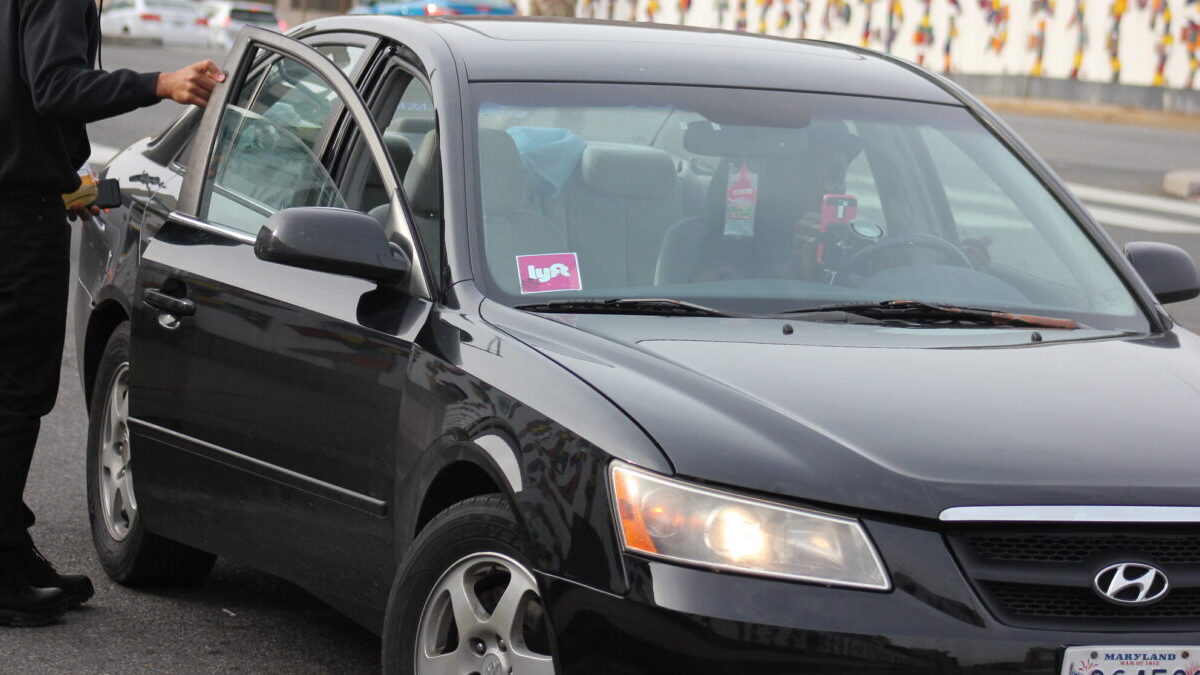On March 13, a California appeals court moved to uphold the 2020 ballot measure Proposition 22 — the gig economy’s response to a state bill that would have doomed freelancing in the Golden State. The new ruling overturns a lower court decision that had nullified Prop 22, meaning that worker independence lives on in California — for now, at least. But Big Labor won’t give up so easily: Service Employees International Union (SEIU) intends to appeal Prop 22’s new reprieve, indicating a long legal slog still awaits the gig economy.
Given its support at the polls and popularity among gig drivers themselves, Prop 22’s legal victory should be cause for celebration. But for mega-unions like SEIU, which co-sponsored both the campaign against Prop 22 and the subsequent battle to overturn it in the courts, Prop 22’s success threatens the status quo.
Big Labor makes big bucks by convincing workers, politicians, and the public that the worker serves the corporation as a replaceable cog in a machine. With the reality and draw of independent work, businesses and unions must reimagine their workplace structure and governance to adapt to the ever-increasing independence and value of the individual worker. And that’s a problem for unions: By changing the public’s conception of what work can be and what workers can do, the gig economy and the independent worker are disrupting the “big business” model keeping Big Labor afloat.
The Law to Limit Gig Workers
Prop 22, passed by popular vote in November 2020, was a direct response to California’s Assembly Bill 5 (A.B. 5), passed in the legislature earlier that year. A.B. 5 had classified gig drivers as “employees,” imposing harsh new strictures on both drivers and their platforms of choice. These limitations impeded drivers’ freedom to set their own schedules, log in at will, and enjoy other privileges reserved for the self-employed.
The bill’s anticipated costs to drivers, companies, and consumers was predicted by some analysts to bankrupt Uber, Lyft, and DoorDash and stymie the evolution of independent work altogether. Indeed, that threat looked so probable that both Uber and Lyft seriously considered vacating the California market in response to A.B. 5’s passage.
Prop 22 was designed to provide an exit ramp for gig drivers and startups trying to avoid A.B. 5’s roadblocks. And when put to the public, the measure enjoyed bipartisan approval, garnering the support of 58.6 percent of voters and 47 percent of registered Democrats. It also found favor among gig drivers themselves, who backed the measure by 60-70 percent, according to data from the Rideshare guy, and by 72 percent, according to research conducted by Edelman Intelligence.
Labor Union Opposition
But California SEIU president David Huerta dismissed Prop 22’s democratic popularity as irrelevant, arguing that voters only favored the measure because ride and delivery app companies tricked them.
“Every California voter should be concerned about corporations’ growing influence in our democracy and their ability to spend millions of dollars to deceive voters and buy themselves laws,” Huerta said in a statement following the March 13 ruling. That’s pretty rich coming from a union that’s been caught funneling its own members’ dues toward political donations.
Gig Drivers Support Prop 22
Regardless, no political machinations can deny Prop 22’s increasing support among gig drivers themselves. Along with the data showing gig drivers’ support for Prop 22 in the months preceding its passage, the research firm Benenson Strategy conducted an extensive survey three months following its implementation. (While Uber commissioned Benenson to conduct their survey, Benenson collected all data and performed and reported all research independently.)
The results were impressive: 82 percent of ride and delivery app drivers were happy that Prop 22 had passed, and 92 percent had experienced positive effects from the measure’s ability to help them skirt A.B. 5’s limitations. For drivers, these included set schedules and limited hours; for startups, they meant mandatory minimum earnings and paid time off.
Outlook
It’s likely that SEIU’s plan to appeal the ruling on Prop 22 won’t be the last skirmish in the ongoing battle for worker independence. Delivery startups and the be-your-own-bosses of the ride-hailing world can anticipate further challenges from the union bosses threatened by the independent worker, and Prop 22 stands as a key litmus test in that fight.
If granted, the SEIU’s petition for appeal will kick the case up to the California Supreme Court. The court will then have the final say in gig drivers’ and companies’ status — and potentially survival — in the Golden State. Whatever the ruling, that decision would send shockwaves throughout the gig economy and establish a major legal precedent for the future of independent work nationwide.









